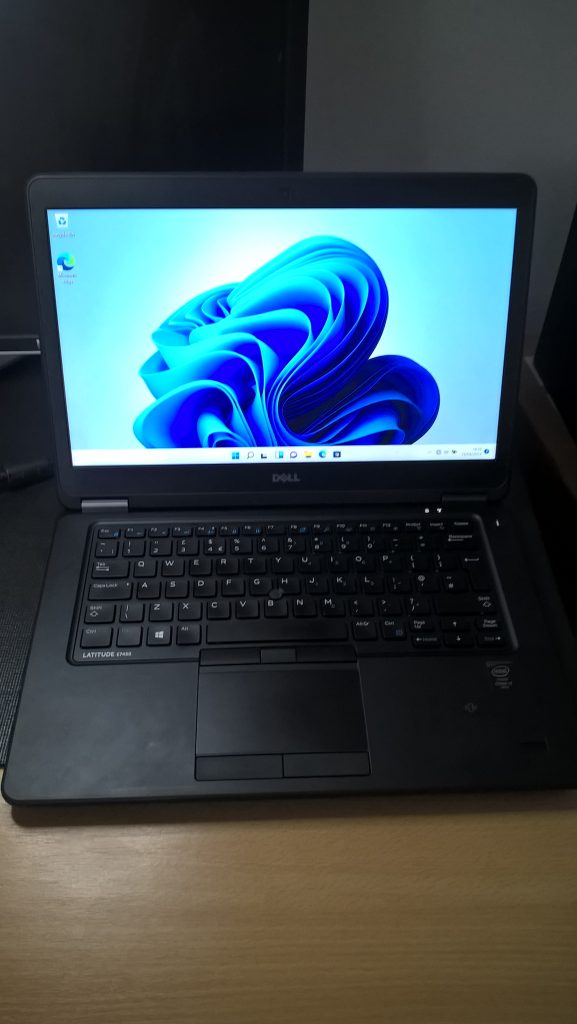Choosing the Right Laptop for Post-Undergraduate Life: A Comprehensive Guide
Completing your undergraduate degree is a significant milestone, especially if you’ve been juggling the demands of academia with a gaming laptop. As students transition from academic life to the workforce or further studies, the choice of technology becomes paramount. Recently, a Reddit user shared their dilemma about finding a suitable laptop after using an MSI gaming laptop for five years. Their requirements were straightforward: a laptop that is not touch screen or a MacBook, all under a budget of CAD 800. This article will delve into the intricacies of selecting an appropriate laptop, while offering recommendations and insights for recent engineering graduates—and students in general—looking for their next tech companion.
Understanding Your Needs
Identifying Your Purpose
The first step in selecting a laptop is understanding what you will use it for. While many engineering students may have been heavily reliant on laptops for coursework and gaming during their studies, post-graduation needs may differ. Here are some specifications to consider:
-
Basic Computing Needs: If your primary use will be web browsing, document editing, and occasional video calls, then a laptop with moderate specs will suffice.
-
Professional Software Requirements: If your future job or further studies involve specific Software, such as AutoCAD, MATLAB, or simulation tools, ensure the laptop can support these applications efficiently.
-
Portability: Consider how often you will carry your laptop. A lightweight and slim design may be more suitable for those frequently on the go.
-
Battery Life: For graduates who plan on working in environments where power outlets may not be readily available, a laptop with good battery longevity is essential.
Budget Considerations
Understanding your budget is crucial. You are looking to spend a maximum of CAD 800, which is reasonable for many mid-range laptops. However, prices can fluctuate based on the vendor, seasonal sales, and the specifications of the devices.
Key Specifications to Look For
Processor
The processor is the heart of any laptop. For most users, an Intel Core i5 or AMD Ryzen 5 would strike a good balance between performance and cost. These processors will handle everyday tasks efficiently, as well as moderate multitasking.
RAM
Having enough RAM is essential for a smooth experience, especially if you plan to run multiple applications simultaneously. Aim for at least 8GB of RAM. This will allow you to keep several tabs open and run productivity Software without encountering slowdowns.
Storage
Solid State Drives (SSDs) are preferable over traditional Hard Disk Drives (HDDs) for speed and performance. A laptop with at least a 256GB SSD would provide adequate space for your documents, applications, and media, along with significantly faster boot and load times.
Display
Given that you’ve mentioned not wanting a touchscreen, look for a laptop that has a standard IPS display for better color accuracy and viewing angles. Full HD (1920 x 1080) resolution is the minimum standard nowadays, ensuring clear visuals for both work and entertainment.
Operating System
While you mentioned not wanting a MacBook, the operating system will still be important. Windows is a solid choice for compatibility with most engineering software, making it the preferred option for many graduates.
Recommended Laptops Under CAD 800
Based on the criteria outlined above, here are a few excellent options that would suit your needs as you transition from a gaming laptop to a more practical device.
1. HP Pavilion 15
- Processor: Intel Core i5-1235U
- RAM: 8GB
- Storage: 512GB SSD
- Display: 15.6″ FHD (1920 x 1080)
- Price: Approximately CAD 749
The HP Pavilion 15 combines good performance with aesthetics and portability. It is light enough for carrying around but robust enough for daily tasks and moderate multi-tasking. Its 512GB SSD provides ample storage, making it an ideal choice for those who value both speed and space.
2. Acer Aspire 5
- Processor: AMD Ryzen 5 5500U
- RAM: 8GB
- Storage: 256GB SSD
- Display: 15.6″ FHD (1920 x 1080)
- Price: Around CAD 699
The Acer Aspire 5 is well-regarded for its build quality and performance. With Ryzen 5 at its core, the device is capable of running demanding applications with ease. Furthermore, the sleek design and solid battery life make it an excellent portable solution.
3. Lenovo IdeaPad 3
- Processor: Intel Core i5-1135G7
- RAM: 8GB
- Storage: 512GB SSD
- Display: 15.6″ FHD (1920 x 1080)
- Price: CAD 779
The Lenovo IdeaPad 3 balances performance and affordability nicely. Its design is understated yet functional, making it perfect for both academic and professional settings. Plus, the near-full HD display enhances video conferencing and entertainment experiences.
4. Dell Inspiron 15 3000
- Processor: Intel Core i3-1115G4
- RAM: 8GB
- Storage: 256GB SSD
- Display: 15.6″ FHD (1920 x 1080)
- Price: Approximately CAD 629
For those who prioritize basic needs over performance, the Dell Inspiron 15 3000 is a budget-friendly yet capable option. While the i3 processor is slightly lower tier, it’s still efficient for everyday tasks and light engineering workloads.
Additional Considerations
Warranty and Support
Don’t overlook warranty and support options when purchasing your laptop. Many manufacturers offer limited warranties ranging from one to two years. Consider opting for an extended warranty if you plan on using the laptop extensively. Additionally, check the availability of customer support in your area; having reliable help can save you from potential headaches.
Refurbished vs. New
If you’re looking to stretch your budget further, consider purchasing a certified refurbished model. These laptops are inspected and repaired to meet manufacturer specifications, providing significant savings while still ensuring quality. Retailers such as Best Buy, Newegg, and Amazon often have sections that feature refurbished products at discounted prices.
Upgrades and Future-Proofing
Ensure the laptop you choose allows for easily accessible upgrades, such as adding more RAM or swapping out the SSD for a larger model. This adaptability can extend the life of your laptop, making it a worthwhile consideration as your needs evolve.
User Reviews
Before finalizing your purchase, always read user reviews and experiences about the laptop you’re considering. Technology websites like CNET, TechRadar, or Tom’s Hardware provide in-depth reviews, comparisons, and ratings that can help you make an informed decision.
Conclusion
Choosing the right laptop after completing your engineering degree can feel overwhelming, especially with so many options available. However, focusing on your specific needs, budget, and the essential specifications can guide you toward a suitable choice.
In summary, whether you opt for an HP Pavilion, Acer Aspire, Lenovo IdeaPad, or a Dell Inspiron, each option listed comes with its strengths and reliability under CAD 800. In today’s fast-paced world, a good laptop is not just a tool—it’s an investment in your future, a crucial companion as you embark on your next steps. Take your time, do your research, and choose wisely. Happy laptop hunting!
Share this content:




Thank you for this comprehensive guide on selecting a laptop for recent graduates! It’s incredibly helpful to see specific recommendations that cater to different user needs and budgets.
An important aspect to consider alongside the technical specifications and recommendations is the potential for future-proofing. As technology rapidly evolves, it’s wise to consider laptops that not only meet your current requirements but can also accommodate future demands. For instance, opting for a model that supports upgraded RAM or storage can significantly extend its life and usability.
Also, I’d recommend checking compatibility with any specific Software you might be using in your field. For engineering applications, having a laptop capable of running simulations or design Software efficiently can make a significant difference in your workflow.
Lastly, don’t forget to explore potential discounts for students or recent graduates—many tech companies offer educational pricing that could allow you to snag some great gear within your budget! Happy laptop hunting indeed!
Response to Your Laptop Selection Inquiry
Hello! Thank you for sharing such a detailed article about choosing the right laptop post-undergraduate studies. It’s great to see someone actively considering their needs and options before making a purchase. Here are some additional insights and tips that may help you or any readers navigate the laptop selection process further:
1. Performance Considerations
For engineering tasks that may require intensive computations or simulations, especially if you’re using Software like MATLAB or AutoCAD, you might want to prioritize laptops with a slightly higher processor performance if your budget allows. Upgrading to an Intel i7 or an AMD Ryzen 7, if you find a good deal, could be beneficial for future-proofing purposes.
2. Graphics Capabilities
While you mentioned moving away from a gaming laptop, it’s worth considering laptops with dedicated graphics if you plan to work with graphics-heavy applications or gaming on the side. Look for models that offer entry-level dedicated GPUs, like NVIDIA GTX series, which can enhance graphics performance significantly without breaking the bank.
3. Build Quality and Portability
As you transition into a professional setting, robust build quality might be something to consider, especially if commuting or traveling for work is on the horizon. Laptops with aluminum chassis or reinforced designs typically provide better durability than plastic counterparts. Additionally, considering the overall weight
Response
Great article on choosing a laptop post-graduation! It’s crucial to clarify requirements, especially when transitioning from a gaming laptop to something more suited for professional use. Here are a few additional points to consider that might help you further refine your choices:
Performance vs. Price
While sticking to a budget of CAD 800 is commendable, it’s worth noting that performance can vary significantly between models at this price point. Additionally, looking for seasonal sales or checking manufacturer websites for deals might let you stretch your budget a bit further. Sometimes, you can score a higher-spec model for a similar price during promotional events.
Specific Use Cases
It’s essential to reflect on your specific use cases. While laptops like the HP Pavilion 15 and Acer Aspire 5 are solid general recommendations, if you plan to use demanding engineering Software, you might want to prioritize processors with higher benchmark performance scores and additional RAM. Even a modest upgrade to 16GB could vastly improve your multitasking capabilities.
Graphics Considerations
Although you’re not considering gaming on this new laptop, knowing that integrated graphics can be a limitation for CAD or other design applications is vital. Check if the laptops you’ve listed offer decent integrated graphics or if they support any external GPU options for enhanced performance in the future.
Consider Battery Specifications